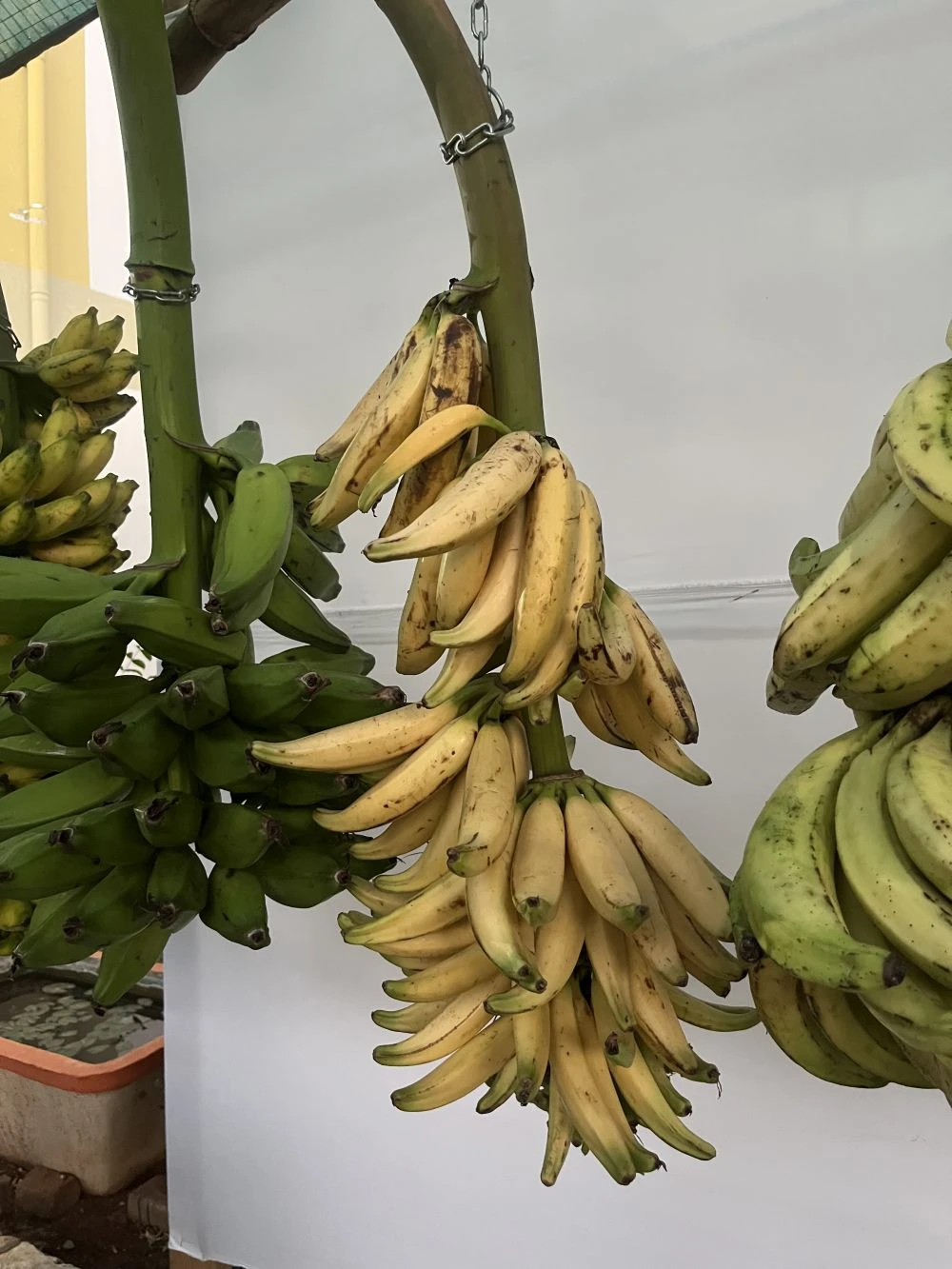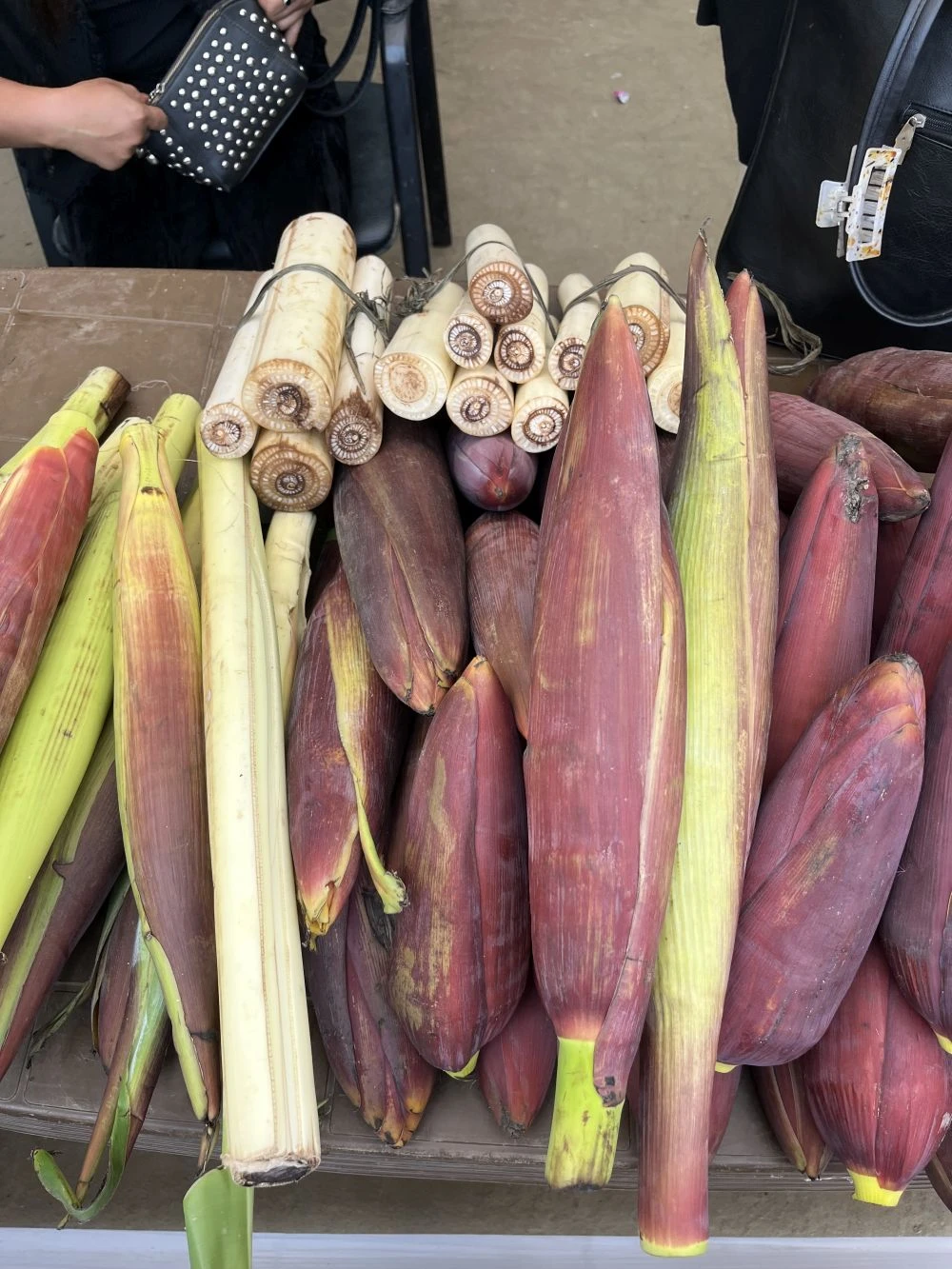Varieties of banana grown in Wokha district. (Morung Photo)

Meribeni T Kikon
Wokha | September 27
Wokha District, known as the “Land of Plenty” for its rich agro-climatic advantages, is preparing to host its first-ever Banana Festival scheduled from October 22 to 24 this year. Beyond celebrating the fruit, the festival is part of a larger vision to transform banana cultivation into a modern, market-driven, and value-added agri-business, giving farmers new opportunities to increase income and gain recognition across Nagaland.

“Wokha is abundantly blessed with natural resources, good weather, and hardworking people,” says Vineet Kumar, IAS, Deputy Commissioner of Wokha and Vice-Chairman of the District Planning and Development Board (DPDB).
Under the One District One Product (ODOP) initiative, banana has been chosen to replace fish as the district’s flagship product. To support this, a five-year vision document for banana development was recently launched by Dr Jitender Singh, Minister of State for Science and Technology, setting a roadmap to modernise banana cultivation, promote value addition, and expand market access.
As part of the initiative, Wokha has conducted a baseline survey and adopted a model block to pilot modern techniques. The district has also partnered with the ICAR National Research Centre for Banana (NRCB) and the Central Tuber Crops Research Institute (CTCRI), Kerala, enabling selected farmers to complete 10-day exposure trips to gain hands-on experience in advanced farming, post-harvest handling, and value-added production.
Speaking to The Morung Express about the upcoming festival, DC Wokha Vineet Kumar expressed his enthusiasm, “We are very excited. This is not only the first time for Wokha, but also possibly for Nagaland. It is part of our five-year vision for banana, and this festival is the starting point for that journey.”
The idea for the festival emerged during discussions in the DPDP meetings. “We wanted a product that truly represents our farmers,” Kumar explains. “After evaluating various options, banana was chosen because Wokha is the largest producer in the state, and it is cultivated across the district.”
The festival is designed to be both educational and celebratory, with more than 30 technical institutions participating from across India. Highlights include buyer-seller meets, exposure training, awareness programmes, and fun competitions aimed at engaging both farmers and visitors. Kumar emphasised that the goal is to redefine banana as a commercial crop, where not just the fruit but all parts of the plant can generate value.
“We want to transform farmers into entrepreneurs and businesspersons, enabling them to get more value from their products,” Kumar adds. “This festival will also provide training and exposure to youth and women entrepreneurs, which is crucial for the long-term growth of agriculture in Wokha.”
Under this initiative, the district hopes banana will become synonymous with Wokha, much like tea is with Assam. “It’s a long-term goal,” says Kumar. “But we are starting now, and with farmers’ enthusiasm and cooperation, I believe we can achieve it.”

For visitors, the festival aims to highlight Wokha’s natural wealth, hardworking farmers, and entrepreneurial spirit. And for the farmers themselves, Kumar’s message is clear: “Participate actively in this festival. This is just one part of our vision. With your cooperation, the coming years will bring real benefits for Wokha’s agriculture.”
Currently, banana is cultivated across 864 hectares in Wokha, producing over 11,500 metric tonnes annually. Unlike seasonal crops, bananas provide a year-round source of income and food security for thousands of farming households. The district administration has partnered with ICAR-National Research Centre for Banana (NRCB), Kerala, and the Central Tuber Crops Research Institute (CTCRI) to train farmers in advanced cultivation techniques, post-harvest handling, and value-added production.
Efforts are underway to enhance market access through agencies like APEDA, TRIFED, NERAMAC, and private buyers. Wokha bananas will be branded with barcoding, packaging, and certification, while online platforms such as Amazon Karigar, Flipkart Samarth, and ONDC will extend reach to national markets. Value addition initiatives include chips, flour, beverages, eco-friendly fibre crafts, and more, ensuring zero-waste utilisation from fruit, peel, pseudostem, leaves, and flowers.
A Banana Agri-Business Incubation Centre is planned at ICAR-KVK Wokha with NABARD support to further encourage entrepreneurship, innovation, and circular economy practices. The district administration is also prioritising access to credit under the Annual Credit Plan (2025–26), along with awareness drives to promote flagship schemes like MIDH, PMFME, KCC, PMFBY, and MUDRA.
The Vision 2030 roadmap divides implementation into three phases. The first phase focuses on Wozhuro Block as a model cluster, farmer training, and the festival launch. The second phase will expand to additional blocks with construction of incubation and cold storage facilities. The third phase aims for district-wide adoption of high-yielding varieties, diversification into value-added products, and entry into national and international markets.






